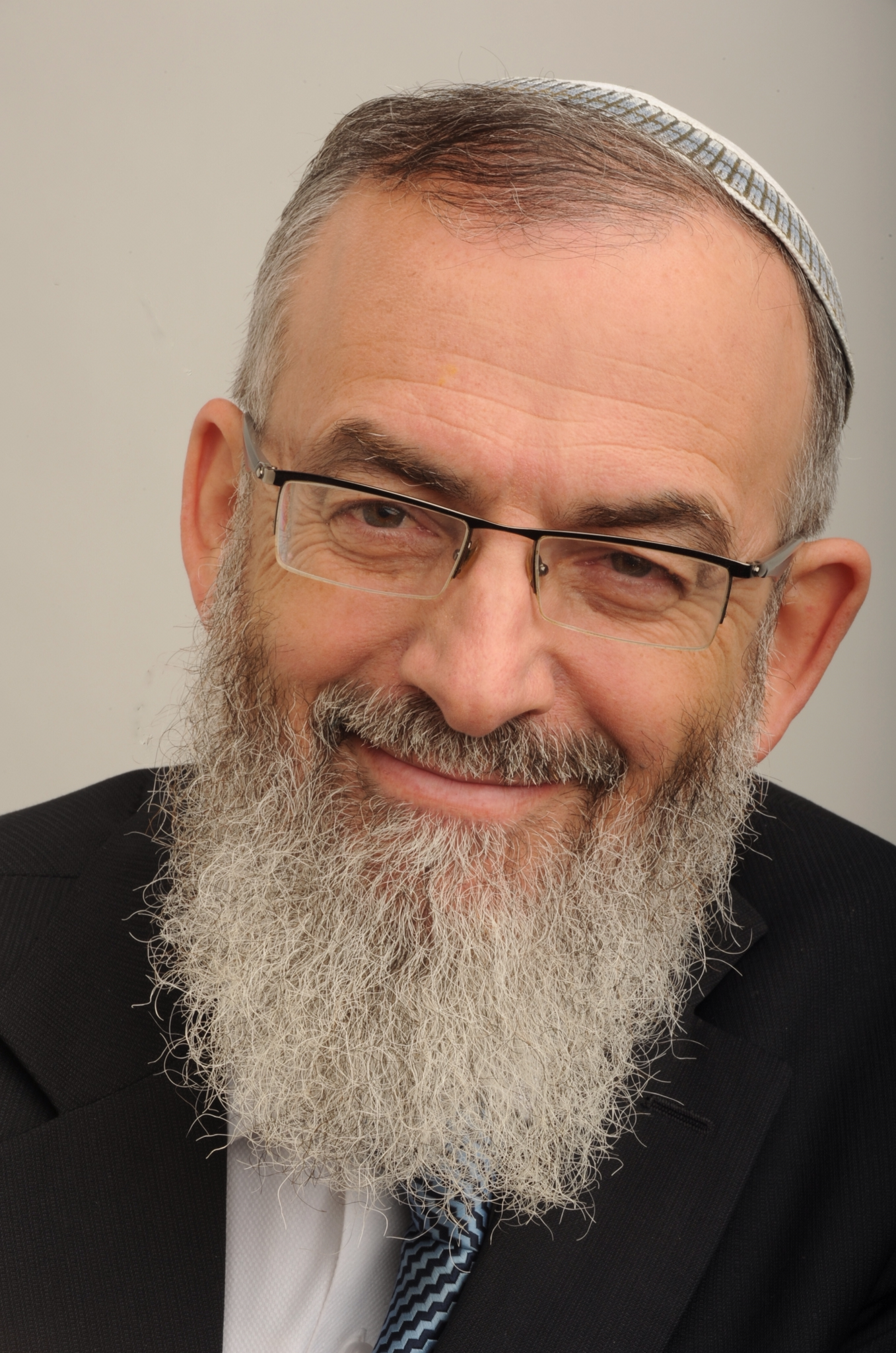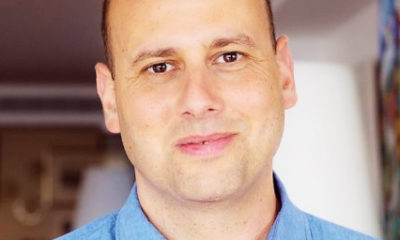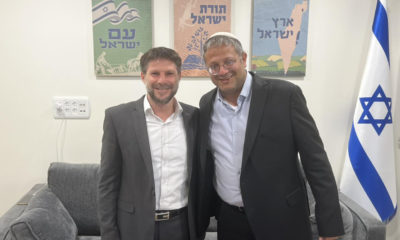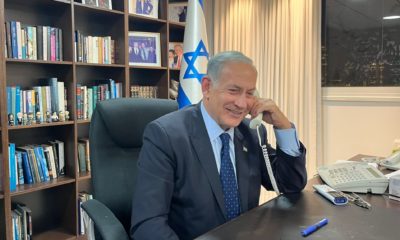
Israel

Religious authorities in Israeli government “could deepen social divide”
The new Israeli government will strengthen the role of religious authorities in daily Israeli life, including over conversion, kashrut, marriage, and divorce, and have an impact on Israel’s relationship with diaspora Jewry.
So says Rabbi David Stav, the founder of the Tzohar Rabbinical Organization and a past candidate for chief rabbi of Israel. He is one of the most active figures working to bridge the extreme divide between religious and secular in Israeli society.
“The government is going to be controlled by haredi parties,” says Stav, who was in Cape Town to interact with the Jewish community. “The deepest concern is that we’re going into a new era, where there’ll be no attempt to bridge the gaps between Israelis. It could split the country, leading to a struggle that will be difficult to come out of. It could lead to a situation like we saw almost 3 000 years ago, with the Jewish people splitting into the kingdoms of Judea and Israel. It will be like Israel is two states – the state of Tel Aviv and the state of Jerusalem.”
Stav founded Tzohar together with five other rabbis soon after Prime Minister Yitzhak Rabin was assassinated. The organisation aims to help shape the Jewish character of Israel through dialogue, and to search for common elements of identity across all sectors of Israeli Jewish society. It’s now made up of more than 800 religious Zionist Orthodox rabbis.
“It was always important, but after the election, the voice that Tzohar brings is more critical than ever on a social level,” says Stav. “Our concern is about the future of Israeli society, and to soften tensions between groups.”
A few weeks before Israel’s recent election, Stav wrote, “With each election cycle, identity politics becomes more and more entrenched, positioning us against each other in deeply painful ways.” He calls it “Judaism and Israelism.”
“In 1948, most would never have believed that these two ideals would come to compete with one another,” wrote Stav. “But 75 years later, the reality is that there are even those who believe that one cannot be a truly good Jew if one is a good Israeli, or a truly good Israeli if one is a good Jew.
“Every day, we need to think about what needs to be done to create a national social framework in which every Israeli Jew – indeed every Jew across the diaspora – can take immense pride in the Jewish and Israeli identities and see no contradiction between the two,” he says.
“It was perhaps not intentional, but last week, tens of thousands of Israelis demonstrated their commitment to that task when they gathered in Yom Kippur services arranged by Tzohar throughout the country,” Stav said. “Every type of Jew was represented there. Sephardim stood along Ashkenazim and the secular alongside the religious. No delineations were made whether the person was voting right or left, Yesh Atid or Likud. Everyone was accepted and embraced. It was a moment of true Israeli and Jewish unity.
“I know that this is a model that can thrive and needs to be replicated in all walks of life. Because if we fail to rediscover that sense of national unity, then the many challenges we face – political, cultural, economic, and social – will become increasingly insurmountable.”
In all its work, the organisation aims to help Jewish Israelis connect to their Judaism in a non-coercive and non-judgemental way. For example, it introduces rabbis to engaged couples who have never had a rabbi, creating an important and personalised connection before the chuppah. This is important because otherwise, couples are assigned a rabbi who doesn’t know them and they may not identify with. “For example, if they’ve been to the army, we’ll match them with a rabbi who has been to the army and they are able to connect more easily.” It has led to thousands of couples coming to Tzohar every year.
It also trains brides and grooms in the laws of niddah, has introduced a prenuptial agreement meant to help divorcing wives get a gett, and opened a private kosher authority. It has helped more than 125 000 olim and their families to prove their Jewishness and therefore preserve their Jewish identity. The organisation recently started offering ethical and halachic counselling, and lectures on end-of-life questions.
Stav says the divisions in Israeli society deepened after Rabin’s assassination, and the need for an organisation like Tzohar became clear. In addition, Tzohar made the radical move of separating religion from politics.
In Israel, there’s “a lot of pain” behind secular Jews turning away from religion, he says, for example, observant Jews are seen as benefitting from not having to go to the army or work, while they have to carry those responsibilities. This means that secular Israelis often turn their back on their Judaism completely.
The increased religious authority of the government is dangerous for Israeli society, Stav says, because the secular half of the country “carries the economy on their shoulders” and it may choose to leave if it feels its voices aren’t heard and the authorities are controlling their lives.
The new government will also have practical implications for conversions being recognised by the state of Israel. “The authority of conversions will fall under the haredi parties, which means almost no conversions will happen in Israel.” This will leave thousands of babies born in Israel and olim in limbo, and it will have an impact on Israel’s relationship with the diaspora. Stav is also concerned about the state having a monopoly on kashrut.
But most of all, he’s concerned that the situation will lead to Israeli Jews “distancing themselves from their Judaism even further”. He predicts that the secular and religious will become even more entrenched in their positions. He also believes more Israelis will assimilate, meeting a non-Jewish partner on their travels after the army and seeing no reason not to marry them.
The relationship between Israel and the diaspora isn’t “in the best shape”, Stav says, but the new government could “deepen the gap” even further. He therefore calls on diaspora communities to continue to “be connected to Israel” and raise their voices if they are concerned. He knows the South African Jewish community has a deep connection to Israel, and he’s impressed with the warmth, commitment, Zionism, and Yiddishkeit found on this southern tip of Africa.
“Our challenge is to explain to the new generation why Judaism is so important and valuable,” Stav says. This is especially important for secular Jews, who he believes will turn away even further if they feel they are being coerced. Rather, an inclusive approach is needed.










